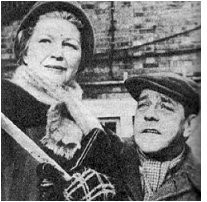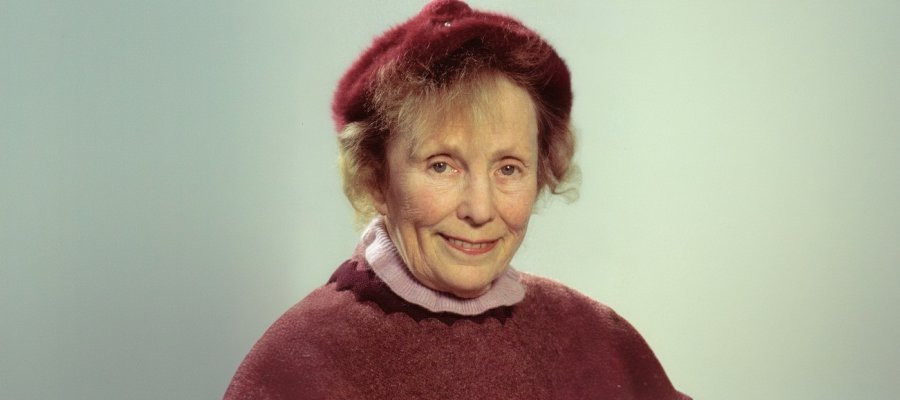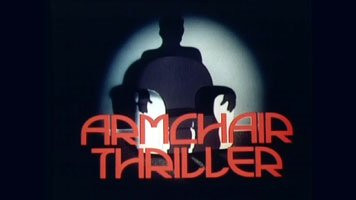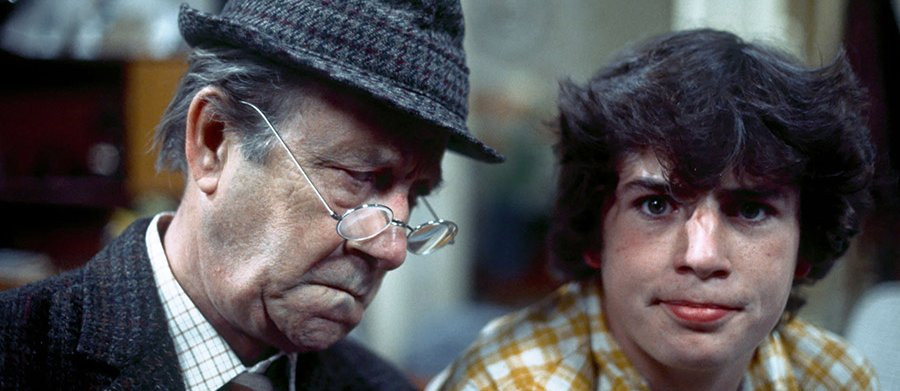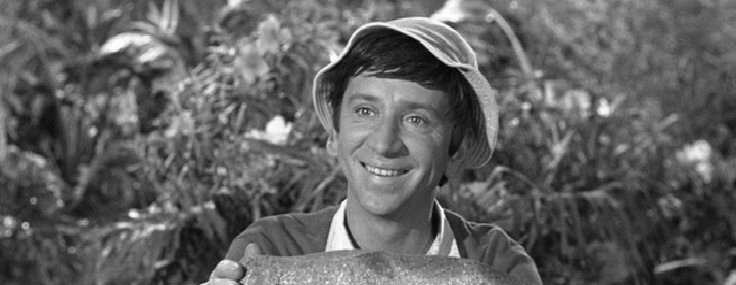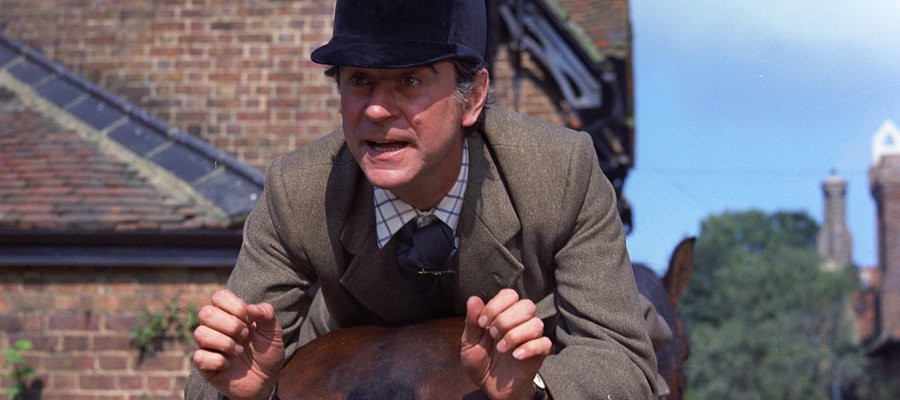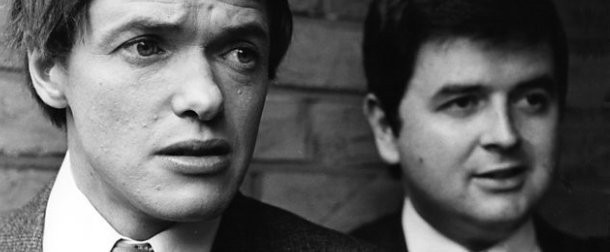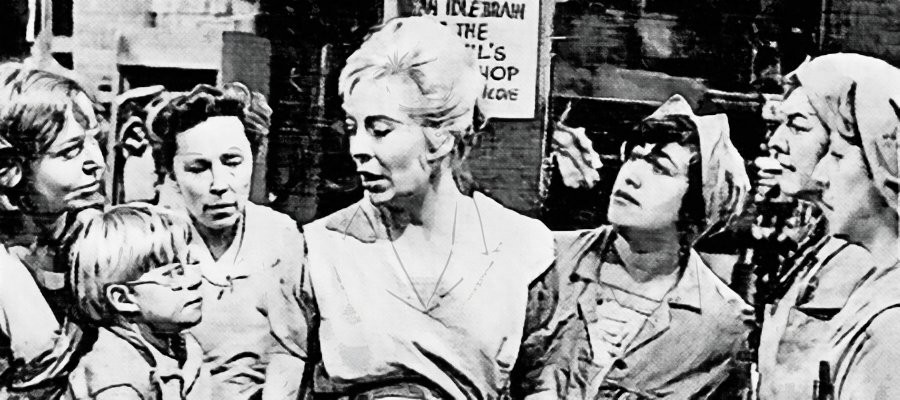
The Four Seasons of Rosie Carr
1964 - United KingdomIn the early months of 1957, Ted Willis, the writer of the landmark British police film The Blue Lamp and its eventual television adaptation Dixon of Dock Green, was aboard the S.S. Otranto, en route to Australia for a film project. Most of the passengers were British emigrants, making the long journey to begin new lives Down Under. Among them, travelling alone, was a seventy-one-year-old woman from East London. Surprised that someone of her age was undertaking such a journey, Willis asked her why she was emigrating. She explained that she was going to Adelaide to reunite with her son, whom she had not seen since he left England at the age of fifteen—nearly forty years earlier. When asked whether she intended to settle in Australia, she replied cheerfully, “Yes. If I like the place, I might settle down there!”
The toughness, cheerfulness, and indomitable spirit of this elderly woman deeply moved and fascinated Willis. She had endured a lifetime of poverty—sixty years of relentless toil. “If anyone was entitled to sit back in an armchair and decline into old age, it was she,” Willis told readers of Radio Times in July 1964. “Yet here she was, sharp as a needle, leaving England for the first time, undertaking a 12,000-mile journey across the world.”
That encounter inspired Willis to write a play about a woman like her. It would be five years before he discussed the idea with Sydney Newman, by then the Head of BBC Television Drama. Newman responded enthusiastically, but it quickly became clear that a single play would not suffice. Willis therefore conceived a cycle of four. Once the scripts were completed, James MacTaggart was appointed producer, and Peter Graham Scott agreed to direct.
“This is in no sense a serial,” Willis explained. “Each play stands alone and may be seen and enjoyed (I hope) without reference to the others.” The overall title, The Four Seasons of Rosie Carr, was chosen to reflect the breadth of the series. “I have tried to show Rosie Carr at four distinct periods—four seasons of her life: in youth, on the verge of middle age, at the close of her middle years, and in old age.”
Spring at the Winged Horse
The first play is set in the spring of 1907. Rosie, played by June Barry, is a young barmaid working fourteen-hour days at The Winged Horse pub, where she also serves as general 'skivvy' (a derogatory term for a female domestic servant who performs menial or unpleasant household tasks). She accepts the hardship and poverty of her life as natural and unchangeable—until a new potman arrives. He is a young man with dreams of building a “green and pleasant land”, and his ideas gradually awaken Rosie to her own worth. As she listens to him, she begins to realise that she, too, is entitled to dignity and respect. Quietly but determinedly, she starts to question the rigid values that had always seemed immutable.
Critic John Tilley seemed particularly preoccupied with the political tone of the play. “A blatant example of a love story used as a peg for social comment was The Four Seasons of Rosie Carr,” he wrote. “Ted Willis, seemingly enthralled by the Victorian underworld of his Sergeant Cork series, has written a cycle of four plays about an orphaned barmaid. The first one freewheeled along nicely, with the even tenor of her degrading existence transformed by the advent of a potman.
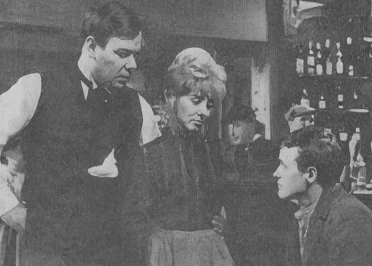
“The potman was an ardent Socialist who had forsaken his home to live among the working classes. The part was played well by James Bolam, a Northern actor who must be glad to get away from the criminal roles he has played lately. There was a rather heavy and unpalatable amount of Socialist idealism, uttered with a great lack of self-confidence. Otherwise, the plot and dialogue were good.”
Despite this criticism, the episode was a ratings triumph—becoming the second most popular television programme of the week, with 2,067,000 homes tuning in.
The Stage offered a far more generous assessment: “Real characters put over the message,” it declared, before adding, “Ted Willis does it again.”
“Ted Willis gave us a sharp reminder that there wasn’t much leisure or gracious living for the underprivileged majority in 1907. There were moments when he steered dangerously close to turning Spring at the Winged Horse into a Brechtian broadsheet of noble poverty versus wicked wealth—but they were only moments. His characters were too alive, too human, to allow themselves to be turned into symbols. His delicious Rosie, played with urchin charm by June Barry, had just that resilience and humour that is the strength of the English underdog. I believe June’s Rosie would have cocked a snook at her employers eventually without any prodding by the rather ineffectual young idealist played by James Bolam.
“Ted Willis was well-served by director Peter Graham Scott. There’s nothing more likely to resemble the start of a stage musical than a crowd scene in the street outside a pub—which is how this episode began. But I never once felt this lot were about to burst into song. The casting of the smaller parts was superb. Madge Brindley, in particular, did as much to convince us we were watching real life as did all the care and money invested in the sets. Vanda Godsell gave the flawless performance we have come to expect of her—although, unavoidably, she looked too beautiful for some of the unflattering comments made about her character. Barry Keegan got right under the skin of the publican husband, and in just a few scenes made me see the man’s entire life. The big surprise was Kenneth J. Warren, made up to look about 21. I always expect a good performance from him—but I didn’t expect to find him something of a Dish. He was, though. It’s a pity we won’t see more of this glamorous Mr Warren.”
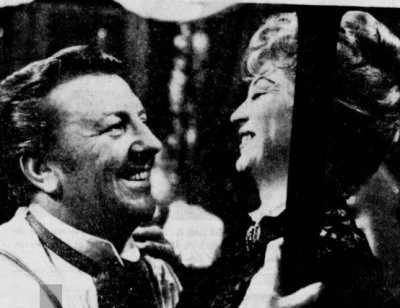
Summer in Matlock Street
Broadcast on 11 July 1964, the second play is set in 1924. Rosie is now in her mid-thirties and portrayed by Jane Hylton. She is married to Tommo (Kenneth J. Warren), an unemployed man, and is struggling to raise a family in a London slum. To make ends meet, Rosie now works in a laundry. Her eldest son, Eddie (Peter Craze), dreams of emigrating to Australia but cannot raise the £25 fare. When Tommo’s mother dies, Rosie sees an opportunity to use the small inheritance to fund Eddie’s future—but this brings her into conflict with Tommo, who accuses her of sacrificing their present for their son’s uncertain dreams.
Autumn Near the Angel
The third play, broadcast on 18 July, moves the story forward to 1938. Rosie, now in her forties, lives under the shadow of an impending world war. Her husband remains sporadically employed, and her daughter Millie—played by June Barry, returning in a new role—is preparing to marry. Simply affording a modest wedding reception becomes a formidable task.
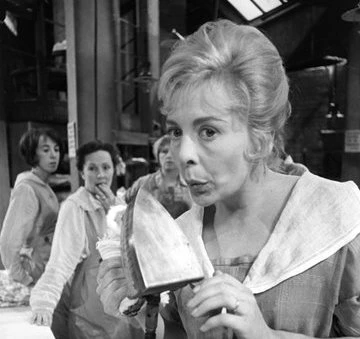
Long Winter Journey
The final episode, Long Winter Journey, was broadcast on 25 July. Rosie is now a widow in her late sixties, living in a contemporary England transformed by the Welfare State. She moves between the homes of her children, clinging fiercely to her independence. Eventually, she makes a bold decision.
Though the play deals with themes of ageing and displacement, it does so with sympathy and restraint. While poverty serves as the series’ natural backdrop, the tone remains surprisingly light, and any hint of moralising is refreshingly absent. “I have tried to show these people as I remember them from my own childhood,” Willis explained, “full of vigour and the zest for life, fighting back obstinately against crushing difficulties, refusing to be broken. If there is any statement in the plays, then that is it.
“Of course, it is old-fashioned and naïve to speak of the indestructibility of the human spirit—to believe the human race has within itself the ability to grow in wisdom, dignity and beauty. It is hard to believe in such things in today’s world. But it is the faith to which I cling, rather desperately, with all my strength and soul.
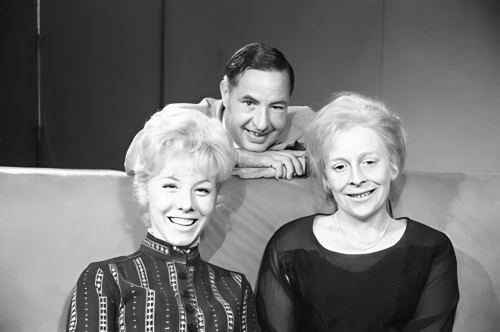
“Every now and then, I am re-vitalised by a fresh proof of this spirit. I heard its authentic voice when Nelson Mandela spoke at his trial. I saw it, despite the sneers, in the Aldermaston marches (anti-nuclear weapons demonstrations in the 1950s and 1960s). And, in their own fierce, individual way, it is present in all the Rosie Carrs of this world—the working-class mums of yesterday and today who utterly refuse to be defeated.”
A review in the Peterborough Evening News, headlined “Fine piece of acting,” offered high praise:
“The Four Seasons of Rosie Carr, the Ted Willis cycle of four plays following the life of a working-class London woman from the turn of the century to the 1960s, was outstanding for two reasons—a careful avoidance of overdrawn characterisation and a fine performance by Jane Hylton, who plays Rosie in the final three episodes. The last play dealt sympathetically and realistically with the problems of old age, portraying a woman forced to leave her home after her husband’s death to live with her children. The ending, with Rosie sailing to Australia to join one of her sons, was somewhat novelettish—a convenient way to end on a happy note—but by then the viewer had grown so fond of Rosie that we were relieved not to witness her death.”
Meanwhile, a reader from Harold Hill in Essex wrote to the Daily Mirror:
“Ted Willis is a brilliant writer. His Four Seasons of Rosie Carr is superb. And full marks too for the acting. What a pity there are only four seasons to a year."
Seen this show? How do you rate it?
Seen this show? How do you rate it?
Published on June 22nd, 2025. Written by Laurence Marcus based on original 1964 Radio Times article by Ted Willis. Adapted for Television Heaven.



